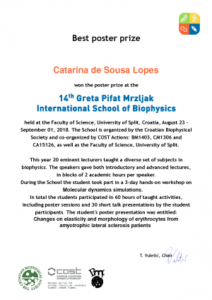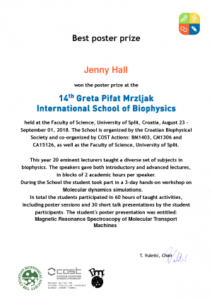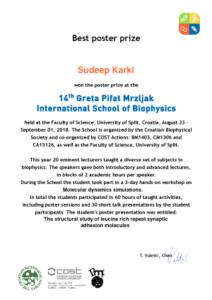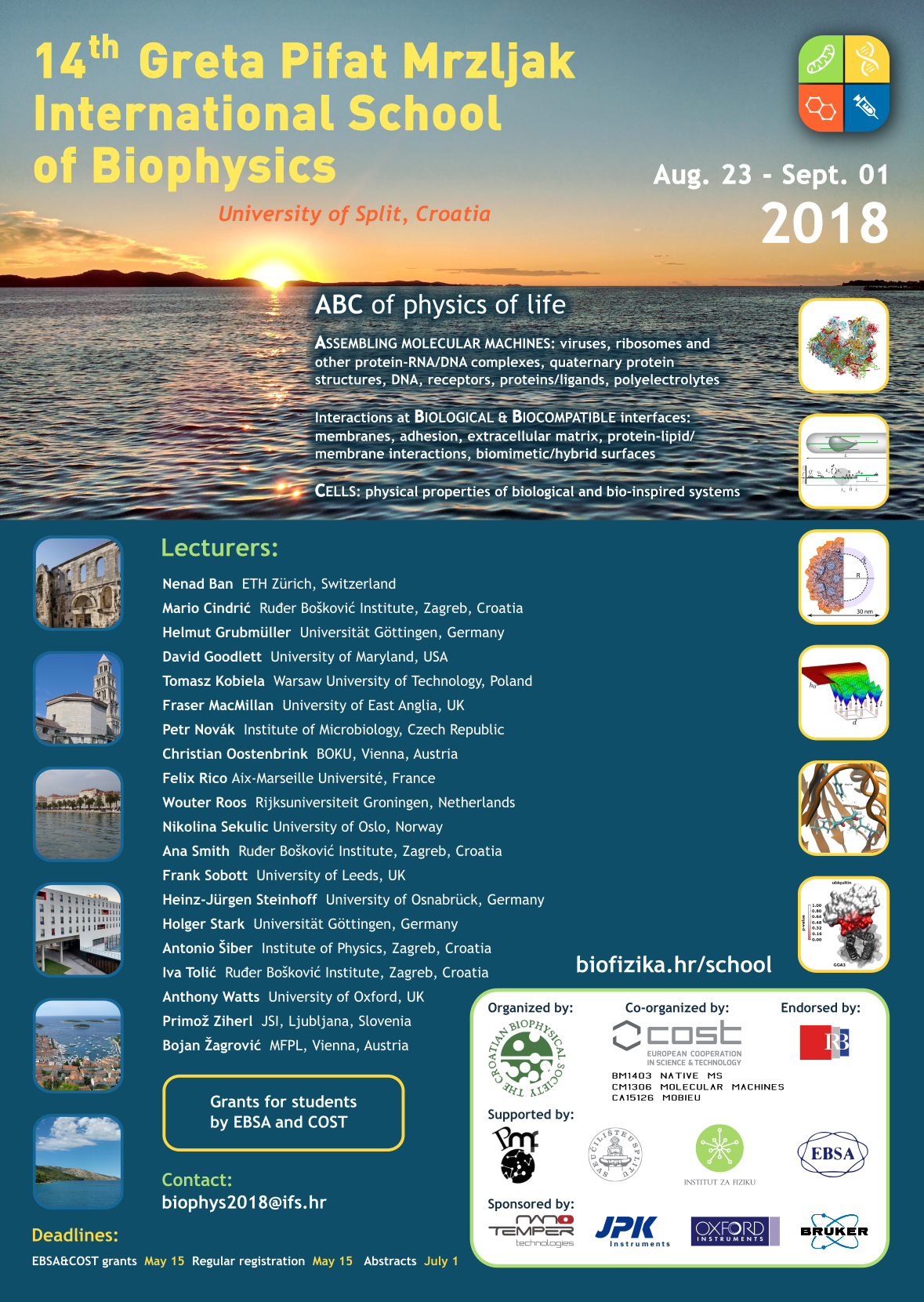EBSA key lecturers:
- Nenad Ban, ETH, Zürich, Switzerland: Protein structure& function; X-ray diffraction
- Ribosomes and their functional complexes
- Beyond the prokaryotic ribosome
- Holger Stark, MPI-BPC, Göttingen, Germany: Protein structure& function; cryoEM
- Introduction into single particle cryo-EM
- High-resolution structure determination of macromolecular complexes by cryo-EM
- Anthony Watts, Department of Biochemistry, Oxford, UK: Protein structure& function; solid state NMR
- Principles of solid state NMR for the study of biomolecules
- Solid state NMR for structural studies of large integral membrane proteins
- Receptor dynamics and structure in membranes resolved using solid state NMR
Special Guest Lecturers:
- David Goodlett, School of Pharmacy, University of Maryland
- Felix Rico, FM4B-Lab, U1006 INSERM & Aix-Marseille Université, Marseille, France
- Mechanics of single biomolecules probed by atomic force microscopy
Physics of cells by Croatia ERC grantees:
- Ana-Sunčana Smith, Ruđer Bošković Institute, Zagreb, Croatia
- Membranes, from self assembly to rafts 1,2,3
- Iva Tolić, Ruđer Bošković Institute, Zagreb, Croatia: Physics of cells
- Forces in the mitotic spindle
- Live-cell fluorescence microscopy and laser-cutting inside the cell
Theoretical simulations:
- Chris Oostenbrink, UNRLF, Vienna, Austria: Structure and dynamics of biomolecules; modeling
- Ensembles and sampling, leading to molecular dynamics simulations
- Structure refinement using molecular dynamics simulations (NMR observables)
- Calculation of free energies from molecular simulation
- Antonio Šiber, Institute of physics, Zagreb, Croatia: Physics of viruses
- Physics of viruses: electrostatics, elasticity and DNA condensation in viruses 1,2,3
- Primož Ziherl, JSI, Ljubljana, Slovenia
- Bojan Žagrović, MFPL, Vienna, Austria: Computational Biophysics of Macromolecules
- More dynamic than we think? On conformational averaging in structural biology 1, 2
- Protein-RNA interactions and the origin of the genetic code
Between Atom and Cell (COST Action CA15126 ARBRE MOBIEU)
- Nadica Ivošević DeNardis, Ruđer Bošković Institute, Zagreb, Croatia
- Tea Mišić Radić, Ruđer Bošković Institute, Zagreb, Croatia
- Tomasz Kobiela, Institute of Biotechnology, Warsaw University of Technology, Poland
- Tomislav Vuletić, Institute of physics, Zagreb, Croatia
Native Mass Spectrometry (COST Action BM1403):
- Mario Cindrić, Ruđer Bošković Institute, Zagreb, Croatia
- Mass Spectrometry for protein sequencing
- Amela Hozić, Ruđer Bošković Institute, Zagreb, Croatia
- Frank Sobott, Uni Antwerpen, Belgium
- “native” mass spectrometry, ion mobility: structural proteomics techniques
- Nikolina Sekulić, Centre for Molecular Medicine, University of Oslo, Norway
- Petr Novák, BIOCEV, Biotechnology and Biomedicine Center of the Academy of Sciences and Charles University in Vestec, Czech Republic
Molecular Machines (COST Action CM1306):
- Helmut Grubmüller, Universität Göttingen, Germany
- Fraser MacMillan, University of East Anglia, UK
- EPR spectroscopy
- Heinz-Jürgen Steinhoff, University of Osnabrück, Germany
- Nadica Maltar-Strmečki, Ruđer Bošković Institute, Zagreb, Croatia
NanoTemper’s MST and nanoDSF Workshop
The workshop will cover principles of biomolecular interaction analytics using Microscale Thermophoresis (MST) as well as protein stability and aggregation assessment with use of nanoDSF technology. We strongly encourage to bring your samples for analysis. Experts from nanotemper will train the students
Number of participants: 24 (working in pairs)
Molecular dynamics simulations
This workshop will help you gain first experiences in performing molecular dynamics simulations. After a short theoretical introduction, you will find out about the basic ingredients for a molecular simulation. You will setup your own simulation of a small peptide and run some short simulations of it. Finally, you will analyse the resulting trajectories and find out what computational methods can offer in addition to experimental approaches. Held by by Prof. Zagrovic and Prof. Oostenbrink. Work on Linux PCs at the Faculty of Science, or you bring your own Linux laptop.
Number of participants: 24
Atomic Force Microscopy (AFM)
AFM is a flexible tool to image and probe samples at the nanoscale. The workshop addresses Ph.D students and post-docs, as well as scientists, core facility technicians and engineers that are interested in the application of AFM to biology. A major emphasis will be on the preparation of biological samples for AFM imaging and spectroscopy and experimental activity will be the core of the workshop. Participants will be divided into groups: each group will focus on a specific scientific topic (biomolecules, cells) and each participant will be given opportunity to use AFM instruments provided by leading companies that are supporting the school. The presentation/lecture modules will be used only as an introductory component – as we strive to promote active learning experiences. Held by by Prof. Roos and dr. Ivosevic DeNardis. Trainers are also Dr. Kobiela and dr. Mišić-Radić, as well as the experts from AFM companies.
Number of participants: 24
Proteome fingerprinting by MS
Mass spectrometry is routinely used to identify pathogens and malignant cell strains by directly fingerprinting their proteome. Prof. Mario Cindric has developed this method to the next level where it can be used for de-novo sequencing of peptides. The method is based on a proprietary chemical derivatization agent for preparation of the protein samples for MS analysis and heavily involves bioinformatics tools to analyze the MS spectra. Held by Prof. Mario Cindrić and Dr. Amela Hozić.
Number of participants: 12
Venue
SPLIT (Dalmatian Capital since Roman Times)
When Emperor Diocletian was considering retirement from governing the Roman Empire, he shopped around, found no decent accommodations and decided to build his own. Thus, Split was born. This magnificent walled city palace, built to Diocletian’s exacting standards, today retains enough of its original charms to attract visitors by the thousands.
Split is the economic and administrative center of Central Dalmatia, with about 200,000 inhabitants. It is a busy port. An international airport and regular ferry services connect Split to the nearby islands, the Northern and Southern Adriatic, Italy and Greece.
University of Split Campus
The new dorm in the campus of University of Split will accommodate and host the School, students will share twin bed rooms with ensuite bathrooms. The accommodation is on a level of a 2-3 star hotel, bedsheets, towels are included.
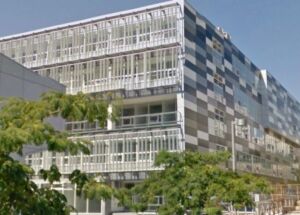
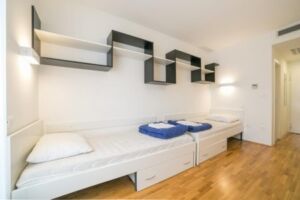
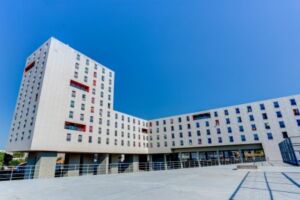
Lectures and hands-on training activities (and registrations and social events) will be held at the Faculty of Science.
Programme & organization Committee
- Mario Cindrić, Ruđer Bošković Institute, Zagreb, Croatia
- Ida Delač Marion, Institute of Physics, Zagreb, Croatia
- Amela Hozić, Ruđer Bošković Institute, Zagreb, Croatia
- Nadica Ivošević DeNardis, Ruđer Bošković Institute, Zagreb, Croatia
- Lucija Krce, University of Split, Croatia
- Nadica Maltar-Strmečki, Ruđer Bošković Institute, Zagreb, Croatia
- Tea Mišić Radić, Ruđer Bošković Institute, Zagreb, Croatia
- Martina Požar, University of Split, Croatia
- Antonio Šiber, Institute of Physics, Zagreb, Croatia
- Tomislav Vuletić, Institute of physics, Zagreb, Croatia (chair)
- Larisa Zoranić, University of Split, Croatia
